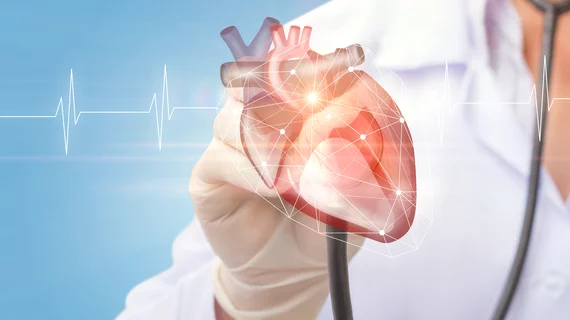Cardiac MRI shows potential for noninvasive pulmonary hypertension diagnosis
Cardiac MRI can accurately diagnose pulmonary hypertension (PH) without the invasiveness of right-sided heart catheterization (RHC), suggests a new study published in Radiology.
Measures of mean pulmonary arterial pressure (mPAP) taken from cardiac MRIs showed good agreement with RHC-measured mPAP, with an intraclass coefficient of 0.78 and an area under the ROC curve of 0.95.
Those findings were evident among 303 patients from a validation cohort who received both cardiac MRI and RHC. The regression algorithm used in that cohort was created from a 300-patient derivation cohort.
Lead author Christopher S. Johns and colleagues also found when a threshold of at least 25 mm Hg was used in the validation cohort, the model had a sensitivity of 96 percent, a specificity of 79 percent, and positive and negative predictive value of 96 and 67 percent, respectively.
“Cardiac MRI has high diagnostic accuracy in a cohort of incident patients referred to a tertiary referral center with suspected PH,” wrote Johns, with Royal Hallamshire Hospital in England, and coauthors. “A reproducible model comprising simple and easy-to-obtain metrics (interventricular septal angle, ventricular mass index, and black blood score) can enable the identification of patients with PH with high accuracy.”
However, the author of a related editorial noted the metrics used in the cardiac MRI are time-consuming to analyze and hold the potential for varying results. He suggested automated deep learning algorithms could eventually boost the efficiency of including right-sided heart pressure estimates in MRI reports.
Read more from Health Imaging below:

